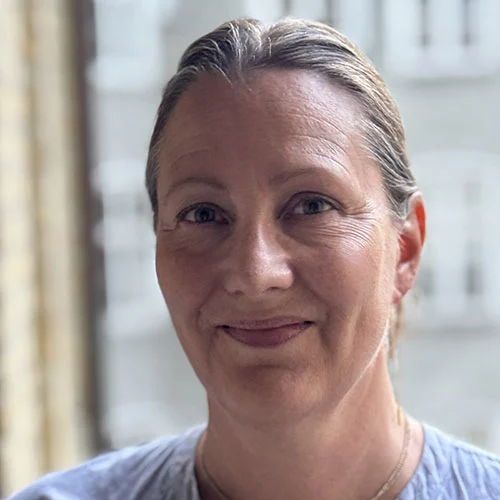ZeroNorth is on a mission to make global trade green. How does the concept of “belonging” intersect with sustainability and digital transformation in a purpose-driven tech company such as ZeroNorth?
In my opinion, very much so! When purpose and sustainability are integrated into the concept of belonging, it creates a deeper and more meaningful connection—both between people and with the organization itself. It moves beyond simply feeling accepted and included to a sense of shared meaning and commitment to a collective future. A clear and inspiring purpose can be a powerful motivator, driving engagement and commitment. When you are invested in the company’s mission, the sense of belonging naturally grows. So, it resonates deeply with me to foster an even stronger sense of belonging in such a purposeful environment—where we are steering the maritime industry towards zero emissions, making an impact every day in our interactions with customers, knowing that we all contribute to a more sustainable future. It’s about creating an organization where we can thrive, grow, and succeed together while bringing our whole selves to work each day.
Your title is “Director of Belonging,” which is refreshingly different from traditional HR titles. Can you share the story behind this title and what it means in practice at ZeroNorth?
Yes, the title is still not commonly seen. Over the past several years, my work has focused on driving and implementing people initiatives designed to strengthen our collective contribution, thriving, and success. The underlying goal has always been to foster a sense of belonging—whether the initiatives were framed as belonging initiatives, employee engagement efforts, growth initiatives, or ways of working processes.
I see this title as capturing the essential people element within an organization. Belonging is a fundamental human need, as Maslow’s hierarchy highlights, and it directly shapes our workplace experience. It’s at the core of our company culture, influencing how we work, communicate, interact, learn, and grow.
I feel very fortunate to work with and be inspired by a visionary people leader who deeply values belonging as a cornerstone of the organization and is the driving force behind initiating this area and title in the organization.
I’m also proud of my role, where the title itself signals our commitment to a people-centric and sustainable approach. In practice at ZeroNorth, this means developing initiatives that empower us to contribute, thrive, and succeed—together.
Belonging is good for business. Among other things, data shows that employees who feel like they can be their authentic selves at work are happier, more motivated, and less likely to leave.”
How do you measure the impact of belonging—something that can feel quite intangible—in a concrete and meaningful way for employees and leaders?
Though it may have a “soft” ring to it, belonging is very tangible—which is supported by strong data—showing that belonging is good for business. Among other things, data shows that employees who feel like they can be their authentic selves at work are happier, more motivated, and less likely to leave. It shows less absenteeism, and higher contribution and eNPS (Employee Net Promoter Scores).
At ZeroNorth, we measure the feeling and impact of belonging in several concrete ways, including looking at retention rates, absenteeism data, and people surveys. For example, we include dedicated questions about belonging in our people pulse surveys. By combining insights from these responses with our engagement and retention metrics, we get concrete evidence of the impact of belonging.
You spent over a decade at BCG in HR and people-focused roles. What leadership philosophies or people strategies from your BCG years still influence how you mentor and lead your team today?
My experience at BCG deeply ingrained in me the significance of professionalism and role modeling. Seeing leaders whose actions consistently aligned with their words (“walking the talk”) showed me who people naturally look up to and want to learn from. This insight into effective leadership is something I actively apply when working on initiatives and collaborating with leaders.
Please tell us about any pivotal moments or mentors at BCG who helped shape your career trajectory or your thinking about people, belonging, and organizational culture?
My time at BCG was defined by the pleasure and opportunity of collaborating with a multitude of outstanding and inspiring individuals. This experience fundamentally shaped my professional identity and work ethic. I also came to appreciate the remarkable and lasting bond shared within the BCG community. I am especially grateful for the inspiring individuals at BCG who recognized my commitment and championed my growth within people-related roles, providing me with invaluable opportunities.
If you could go back and give your younger self—just starting out at BCG—one piece of advice based on everything you’ve learned since, what would it be?
I don’t think I would have changed a thing! I had some fantastic years with BCG Copenhagen, and I would probably tell my younger self: See and grab the opportunities in front of you. Don’t wait for others to carve the road for you but take control of your own journey—show up, be positive and reliable—and bring your can-do attitude.
I believe having this mindset and attitude really made my decade with BCG great and opened opportunities that let me explore and grow my professional potential.



